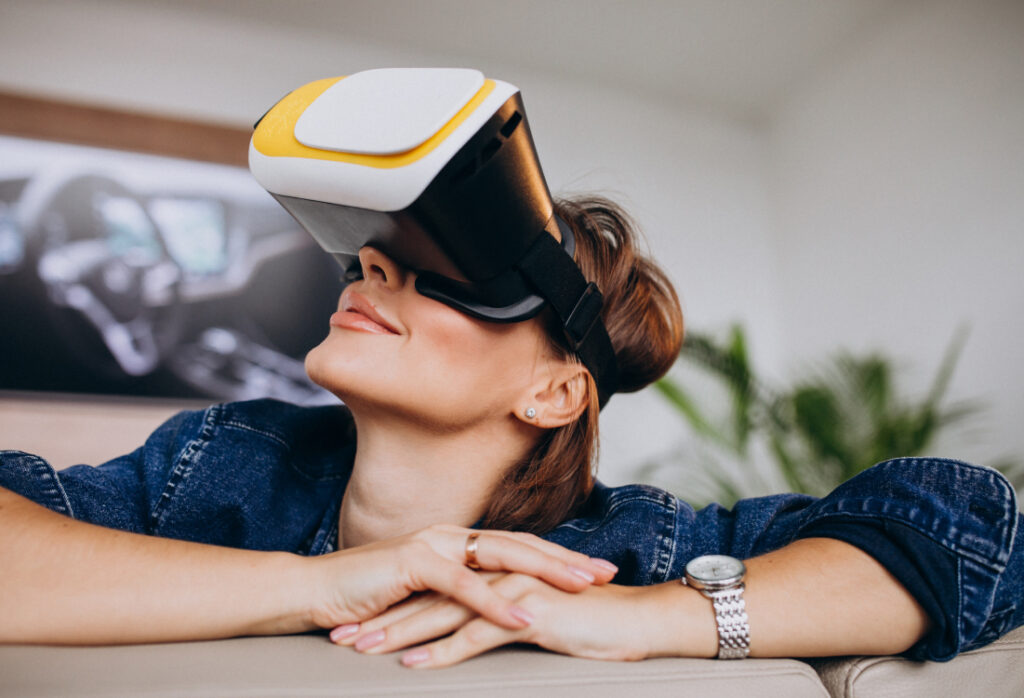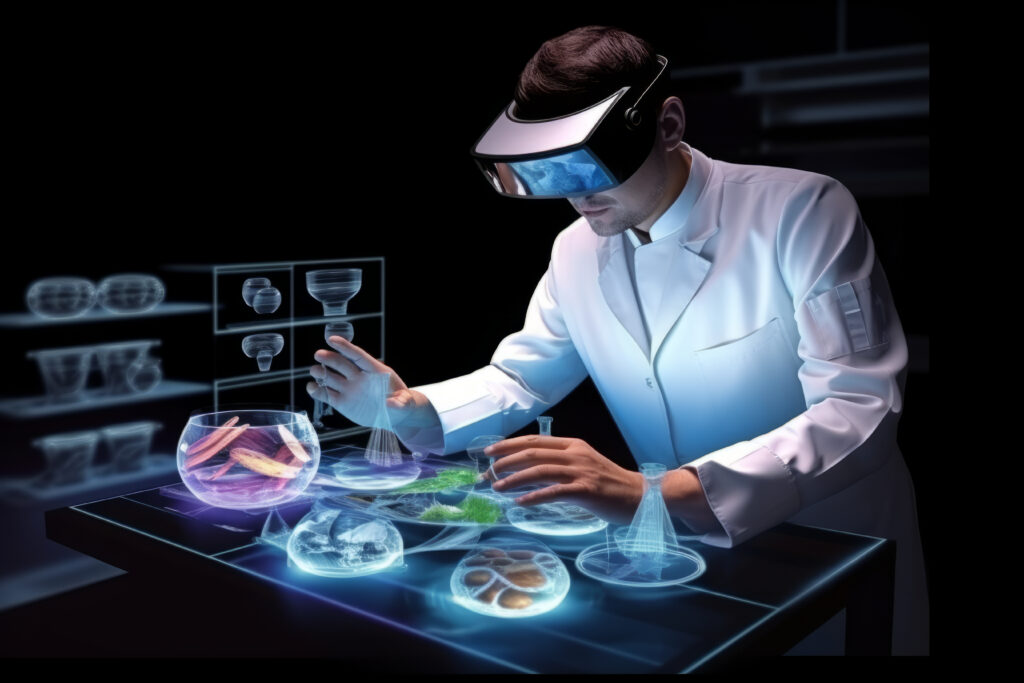The Latest Innovations in Wearable Tech: What’s Hot in 2024
Introduction
In the fast-paced world of technology, wearable tech has emerged as one of the most dynamic and rapidly evolving sectors. From smartwatches to fitness trackers, these devices are becoming increasingly sophisticated, integrating seamlessly into our daily lives and offering unparalleled convenience and functionality. As we step into 2024, let’s delve into the latest innovations in wearable technology, explore what’s new, and discover how these advancements are transforming our lives.
The Rise of Wearable Tech
Wearable tech has come a long way since the introduction of the first smartwatches and fitness bands. Initially seen as a niche market, it has quickly grown into a multi-billion-dollar industry. With advancements in sensor technology, artificial intelligence (AI), and battery life, wearables are now more capable than ever before.
Wearable Tech Market Growth
According to recent market research, the global wearable technology market is projected to exceed $100 billion by 2025. This growth is driven by increasing consumer demand for smart, connected devices that offer health monitoring, convenience, and personalization. As technology continues to advance, we can expect even more innovative solutions to hit the market.
Key Innovations in Wearable Tech for 2024
1. Advanced Health Monitoring
One of the most significant innovations in wearable tech is the advancement in health monitoring capabilities. Modern wearables are no longer limited to tracking steps and heart rate. Today’s devices offer a range of features designed to provide comprehensive health insights.
Heart Health Monitoring
The latest smartwatches and fitness trackers come equipped with advanced sensors that can monitor various aspects of heart health. Features such as ECG (electrocardiogram) monitoring and blood oxygen saturation measurement (SpO2) are becoming standard in high-end devices. These features help users keep track of their heart health and detect potential issues early.
Sleep Tracking and Analysis
Improved sleep tracking technology is another notable development. Wearables can now monitor sleep stages, heart rate variability, and sleep quality with greater accuracy. This data helps users understand their sleep patterns and make adjustments to improve overall health.
Stress and Mental Health Monitoring
Emerging wearables are incorporating features that track stress levels and mental well-being. By analyzing physiological indicators such as heart rate variability and galvanic skin response, these devices can provide insights into stress levels and offer relaxation exercises to help manage anxiety.
2. Enhanced Battery Life and Charging Solutions
Battery life has always been a significant consideration for wearable tech. The latest innovations are addressing this challenge with advanced battery technology and new charging solutions.
Longer Battery Life
New battery technologies are extending the battery life of wearable devices. Innovations such as solid-state batteries and power-efficient processors are allowing wearables to last longer on a single charge. Some devices now offer up to two weeks of battery life, a significant improvement from earlier models.
Wireless Charging
Wireless charging is becoming more common in wearable tech. Many new devices support Qi wireless charging, making it more convenient to power up without the hassle of cables. This feature is particularly useful for users who are always on the go.
3. Integration with Smart Home Devices
Wearable tech is increasingly integrating with smart home systems, creating a more cohesive ecosystem of connected devices. This integration allows users to control various aspects of their home environment directly from their wearables.
Voice Assistants and Home Automation
Many new smartwatches and fitness trackers come with built-in voice assistants like Amazon Alexa or Google Assistant. This integration enables users to control smart home devices, check the weather, set reminders, and more, all from their wrist.
Smart Home Control
Wearables are also being used to control other smart home devices, such as lighting and thermostats. By syncing with home automation systems, users can adjust their home environment based on their preferences and activities.
4. Fashion and Personalization
As wearable tech becomes more mainstream, manufacturers are focusing on fashion and personalization to appeal to a broader audience. This trend is leading to more stylish and customizable wearable devices.
Design and Aesthetics
Wearable tech is no longer just about functionality; it’s also about style. New designs feature a variety of watch faces, bands, and materials, allowing users to personalize their devices to match their style. Some companies are even collaborating with fashion designers to create limited-edition collections.
Customizable Features
In addition to physical customization, many devices now offer software-based personalization. Users can choose from a range of apps, widgets, and settings to tailor their device to their needs and preferences.
5. Improved Connectivity and Data Sharing
The ability to connect and share data seamlessly is a critical feature of modern wearables. Innovations in connectivity and data sharing are enhancing the user experience and making it easier to integrate wearable tech into daily life.
5G Connectivity
The rollout of 5G technology is improving the connectivity of wearable devices. With faster data speeds and lower latency, wearables can now offer more robust features and better performance. This advancement is particularly beneficial for applications such as real-time health monitoring and augmented reality.
Enhanced Data Integration
Wearables are increasingly integrating with other health and fitness apps, allowing users to consolidate their data in one place. This integration provides a more comprehensive view of health and fitness metrics and enables users to track their progress more effectively.
6. The Future of Wearable Tech
Looking ahead, the future of wearable tech holds exciting possibilities. From augmented reality (AR) glasses to neurotechnology, innovations on the horizon promise to push the boundaries of what wearable devices can do.
Augmented Reality (AR) Glasses
AR glasses are poised to be the next big thing in wearable tech. These devices overlay digital information onto the real world, offering immersive experiences and new ways to interact with technology. Companies like Apple and Google are already working on AR glasses that could revolutionize how we use technology.
Neurotechnology
Neurotechnology is another emerging field in wearable tech. Devices that can monitor and potentially influence brain activity are in development, offering possibilities for improving cognitive function, managing stress, and enhancing overall well-being.
Conclusion
The world of wearable technology is evolving rapidly, with new innovations making these devices more powerful, versatile, and stylish than ever before. From advanced health monitoring and improved battery life to enhanced connectivity and future technologies, the latest wearables offer a glimpse into the future of tech. As we continue to embrace these advancements, wearable tech is set to play an increasingly integral role in our daily lives.
Stay tuned to GetNewUpdates.com for the latest news and updates on wearable tech and other cutting-edge technologies. At GetNewUpdates.com, you can find the freshest information and in-depth analysis on the latest trends in technology.













